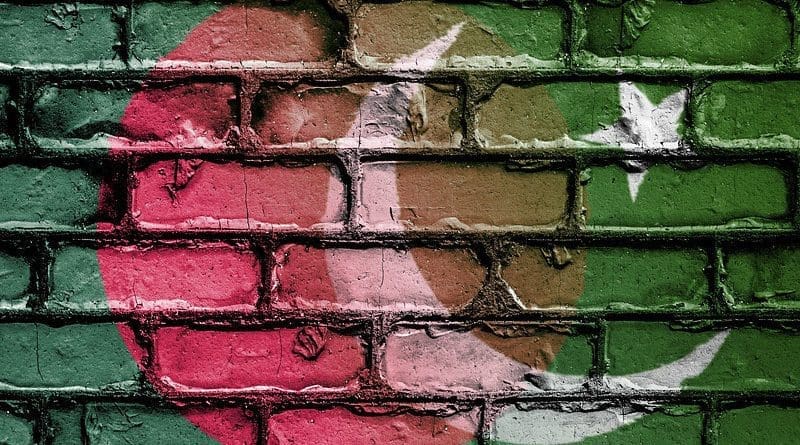Pakistan-Bangladesh Relations: A Journey Of Ebb And Flow – OpEd
The intricate relationship between Pakistan and Bangladesh is a blend of historical nuances, political dynamics, and regional influences. From moments of cordiality to periods marked by tension, this relationship offers a fascinating study of diplomatic intricacies, missed opportunities, and evolving priorities. Delving deeper into its multifaceted phases sheds light on the complexities that have defined their interactions over the decades.
The early 1970s marked a tentative period of goodwill and cooperation. Pakistan’s decision to extend diplomatic recognition to Bangladesh during the Second Islamic Summit held in Lahore was a significant diplomatic move. This gesture was further amplified by Prime Minister Zulfiqar Ali Bhutto’s subsequent visit to Dhaka, hinting at a possible reconciliation between the two nations. Notably, during Sheikh Mujibur Rehman’s leadership from 1972 to 1975, the primary focus was on practical issues such as asset division and repatriation, rather than dwelling on historical grievances. This phase showcased a willingness to move forward, albeit with a focus on pragmatic concerns rather than historical apologies.
The assassination of Sheikh Mujibur Rehman marked a pivotal turning point. Pakistan’s swift acknowledgment of the new regime, coupled with essential humanitarian aid during Bangladesh’s dire famine, signaled an earnest effort to rebuild fractured ties. This renewed commitment culminated in the formal establishment of diplomatic relations in 1976. Subsequent visits by leaders from both nations bolstered trade, commerce, and cultural exchanges, laying the foundation for a more collaborative future. The period from 1977 to 1996 witnessed incremental progress, with leaders like Zia-ur-Rehman, Mohammad Ershad, and Khaleda Zia adopting a forward-looking approach, fostering a semblance of mutual respect and cooperation.
Undoubtedly, the ‘India factor’ has been a recurring theme shaping Pakistan-Bangladesh relations. Bangladesh’s strategic considerations vis-à-vis India post-Sheikh Mujibur Rehman’s assassination prompted Dhaka to reassess its regional alliances. The perceived threat from India fostered a newfound interest in cultivating ties with Pakistan, envisioning it as a counterbalance to Indian influence. This geopolitical calculus, while not the sole determinant, significantly influenced bilateral interactions, adding layers of complexity to an already intricate relationship.
Despite moments of optimism, the relationship has been marred by periodic setbacks. Sheikh Hasina’s tenure since 1996 witnessed a resurgence in demands for Pakistan to acknowledge and apologize for alleged past atrocities. The discovery of mass graves and a global trend of countries confronting historical injustices intensified this narrative, complicating efforts to foster mutual trust and cooperation. Controversial remarks by diplomats and political leaders further exacerbated tensions, leading to visa restrictions, reduced bilateral engagements, and a palpable sense of distrust.
Despite the challenges, recent developments suggest a nascent willingness to recalibrate relations. Engagements between Pakistan’s High Commissioner and Bangladesh’s leadership signify a renewed emphasis on mutual trust, economic collaboration, and regional stability. Prime Minister Imran Khan’s commitment to deepening fraternal relations underscores a broader recognition of shared interests and potential avenues for cooperation. While significant hurdles remain, these positive overtures offer a foundation upon which to build a more constructive relationship.
Navigating the complexities of Pakistan-Bangladesh relations necessitates a nuanced approach that acknowledges historical grievances while prioritizing shared interests and mutual benefits. While past injustices cannot be ignored, they should not hinder efforts to forge a more collaborative future. Economic cooperation, regional stability, and cultural exchanges present tangible opportunities for both nations to redefine their relationship positively. Embracing a forward-looking approach that transcends historical baggage is imperative. Both Pakistan and Bangladesh share historical, cultural, and economic ties that, if leveraged effectively, could catalyze a new era of cooperation and mutual respect. Initiatives focusing on trade, education, and people-to-people exchanges could serve as catalysts for change, fostering a climate of trust and understanding.
In conclusion, while the road ahead may be fraught with challenges, the recent overtures between Pakistan and Bangladesh offer a glimmer of hope. By prioritizing shared interests, fostering mutual respect, and transcending historical grievances, both nations can chart a path towards a more collaborative, prosperous, and stable future. It is incumbent upon leaders from both sides to seize this opportunity, recognizing that the benefits of cooperation far outweigh the limitations of past misunderstandings. Only through concerted efforts can Pakistan and Bangladesh realize their potential as partners in progress, setting a positive example for regional cooperation and diplomacy.


There was no “perceived threat from India” to Bangladesh, then or now. This perception exists only in the imagination of the writer and those gullible enough to think likewise. It is an ISI spin.